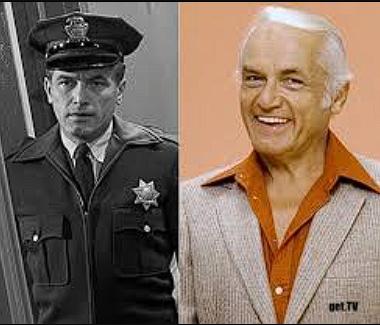In the cramped confines of a Burbank studio in 1967, while lending his resonant voice to the narration of a decidedly unglamorous industrial training film, Ted Knight, a man with a past far removed from forklift safety protocols, paused between takes. Casting a wry glance at the sound engineer, he quipped, “I didn’t crawl out of a foxhole in Belgium to narrate instructions on fork-lift safety.” The engineer chuckled, perhaps missing the underlying seriousness in Knight’s tone. Moments later, however, the seasoned professional seamlessly shifted gears, delivering the subsequent lines in a booming, authoritative baritone – precise, crystal clear, and strangely captivating despite the utterly mundane content.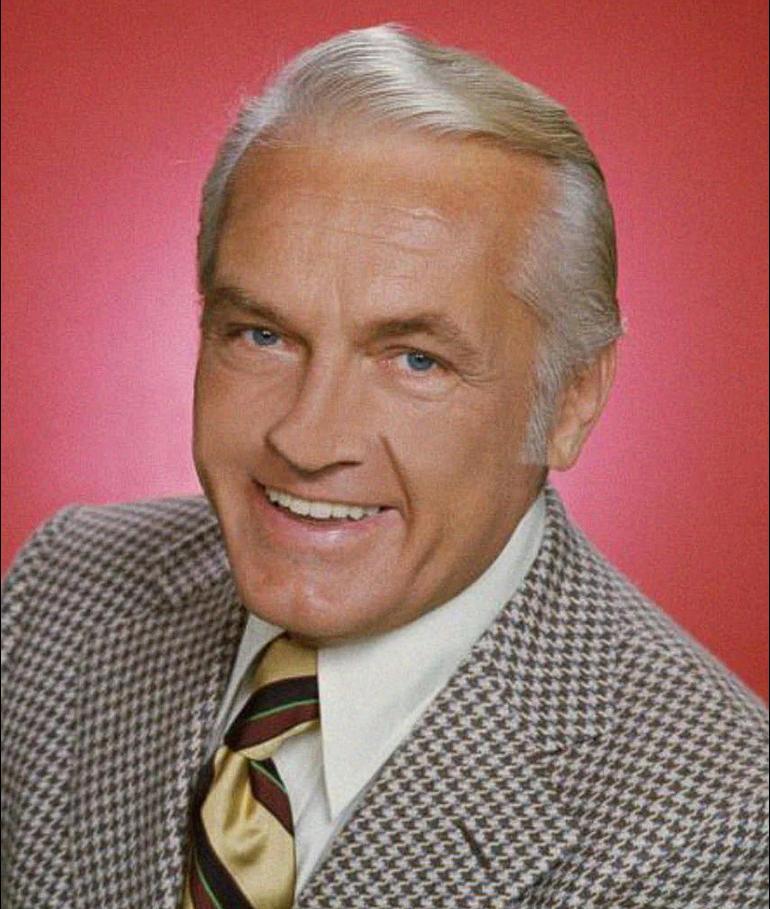
An Unexpected Audition: From War Hero to Egotistical Anchorman
Fate, it seemed, had a peculiar sense of humor. On that very day in the Burbank studio, a producer from CBS happened to be on the premises, diligently scouting for distinctive voice talent. Within a matter of months, Ted Knight’s name surfaced as a potential candidate for a promising new sitcom then being meticulously developed by the creative minds of James L. Brooks and Allan Burns. The character in question? An undeniably egotistical and often hilariously clueless news anchor named Ted Baxter. Initially, Knight vehemently resisted the audition, his pride perhaps still smarting from years of striving for serious recognition. “You want me to play a clown?” he reportedly asked. “I’ve been trying to get taken seriously for twenty years.” However, a private reading of the script at home yielded an unexpected reaction. His wife, Dorothy, was overcome with laughter, tears streaming down her face. “You have to do it,” she urged him, recognizing an undeniable truth. “That’s you, only louder.”
A Voice Forged in War: From Connecticut to the Battlefields of Europe
Born Tadeusz Wladyslaw Konopka on December 7, 1923, in the unassuming town of Terryville, Connecticut, Ted Knight’s early life was rooted in a working-class Polish-American family, deeply imbued with strong Catholic values and the strict discipline of the old world. As a young boy, he faced personal challenges, grappling with a stutter and enduring the taunts of bullies due to his thick accent and lanky physique. Seeking solace and a means of self-expression, he found refuge in the art of mimicry, meticulously imitating the distinctive voices of renowned radio personalities like Lowell Thomas and Edward R. Murrow. A local priest, recognizing the duality within the young Tadeusz, once remarked to his mother that her son possessed “the voice of a bishop, but the soul of a prankster.” His pursuit of a different path led him to drop out of high school to enlist in the U.S. Army during the tumultuous years of World War II, where he bravely served with the 44th Infantry Division. Knight saw active combat in the brutal theaters of France and Germany, earning five battle stars for his service. Yet, amidst the horrors of war, what resonated most deeply with him wasn’t the weight of the medals, but the profound camaraderie he forged with his fellow soldiers and the makeshift stage shows he enthusiastically helped organize to provide much-needed entertainment during brief respites from the fighting.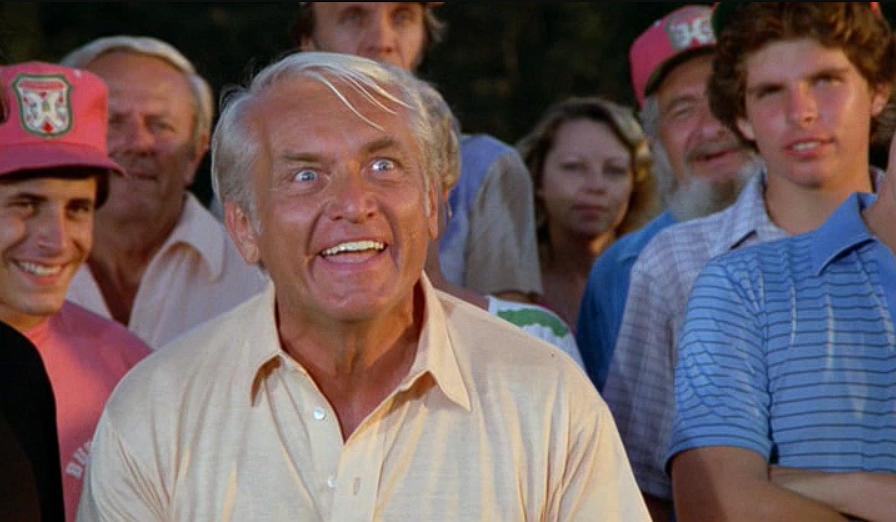
Finding His Voice: From Radio Announcer to Budding Performer
Upon his return to Connecticut after the war’s end, Knight seized the opportunity afforded by the G.I. Bill to pursue his burgeoning passion for the dramatic arts, enrolling in the Randall School of Dramatic Arts. To make ends meet and cover his living expenses, he worked night shifts at a local radio station, honing his vocal skills and gaining valuable experience in the world of broadcasting. By the 1950s, his career led him to Albany, New York, where he further established himself as a respected announcer and even hosted “The Early Show” on WROW-TV. Demonstrating his versatility and vocal dexterity, he also lent his voice to various puppet characters for children’s television programs, often seamlessly switching between five or six distinct voices within a single episode. His remarkable talent for vocal modulation earned him a degree of local fame in the Northeast, but it wasn’t the widespread recognition he deeply yearned for.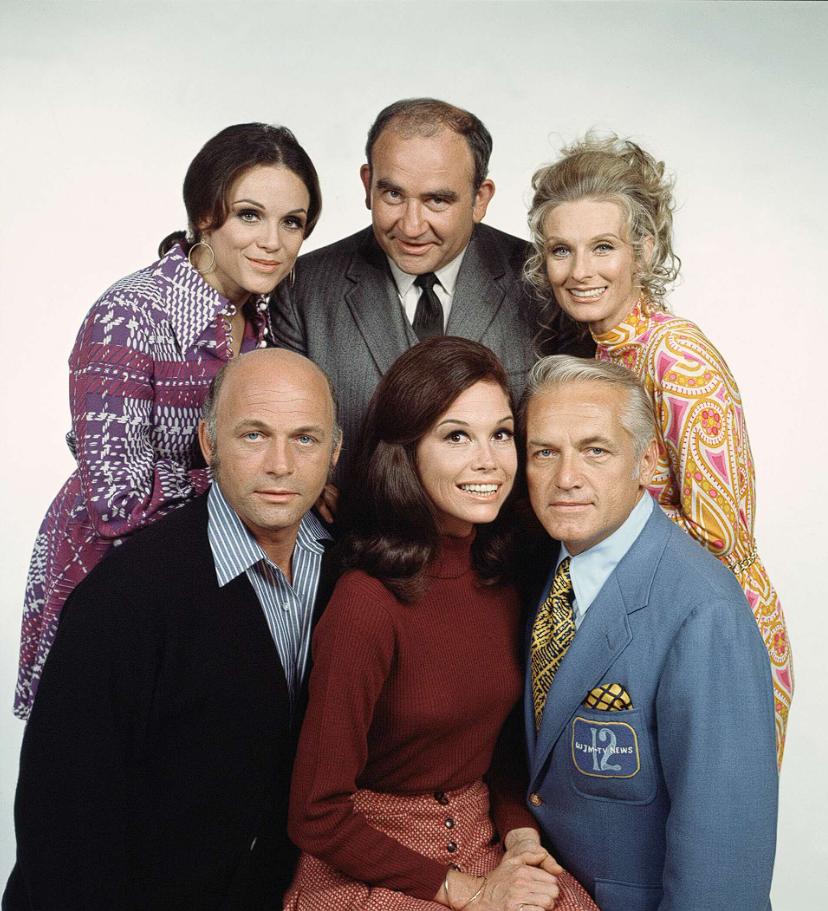
The Lure of Hollywood: Minor Roles and a Fateful Breakthrough
Frustrated by the limitations of his regional success, Knight made the pivotal decision to relocate to the entertainment capital of Los Angeles in the early 1960s, hoping to finally achieve his long-held aspirations. He secured minor television roles, often portraying figures of authority such as policemen and security guards, or playing everyday characters like delivery men. To supplement his income during this period of striving, he also narrated numerous educational films and lent his distinctive voice to various commercials. His long-awaited breakthrough finally arrived in 1970 when he was cast in the role that would forever define his career: Ted Baxter on the critically acclaimed and immensely popular sitcom, “The Mary Tyler Moore Show.” Initially hesitant to embrace a comedic role that bordered on self-parody, Knight masterfully transformed the seemingly one-dimensional arrogant anchorman into a deeply flawed yet oddly endearing and sympathetic character. Over the show’s successful seven-season run, his exceptional comedic timing and nuanced portrayal earned him two prestigious Emmy Awards and cemented Ted Baxter’s place as one of the most iconic and unforgettable television characters of the decade. His comedic timing was razor sharp, and his delivery consistently walked a delicate tightrope between utter absurdity and genuine moments of unexpected vulnerability. He once poignantly remarked to “Newsweek,” “Every line Ted Baxter says is a cry for approval that never comes.”
Beyond Baxter: A Versatile Talent on Screen and Stage
Following the conclusion of “The Mary Tyler Moore Show” in 1977, Ted Knight took a brief respite before making a successful return to the sitcom world with “Too Close for Comfort” in 1980. In this series, he showcased his versatility by portraying Henry Rush, a lovable cartoonist and devoted family man. The show enjoyed a successful run for several years, further solidifying his reputation as a dependable and engaging television lead. Additionally, Knight delivered a standout and memorable performance on the big screen as the hilariously uptight and perpetually exasperated Judge Smails in the iconic comedy film “Caddyshack” (1980), a role that brilliantly showcased his often-underutilized flair for physical comedy and barely contained fury.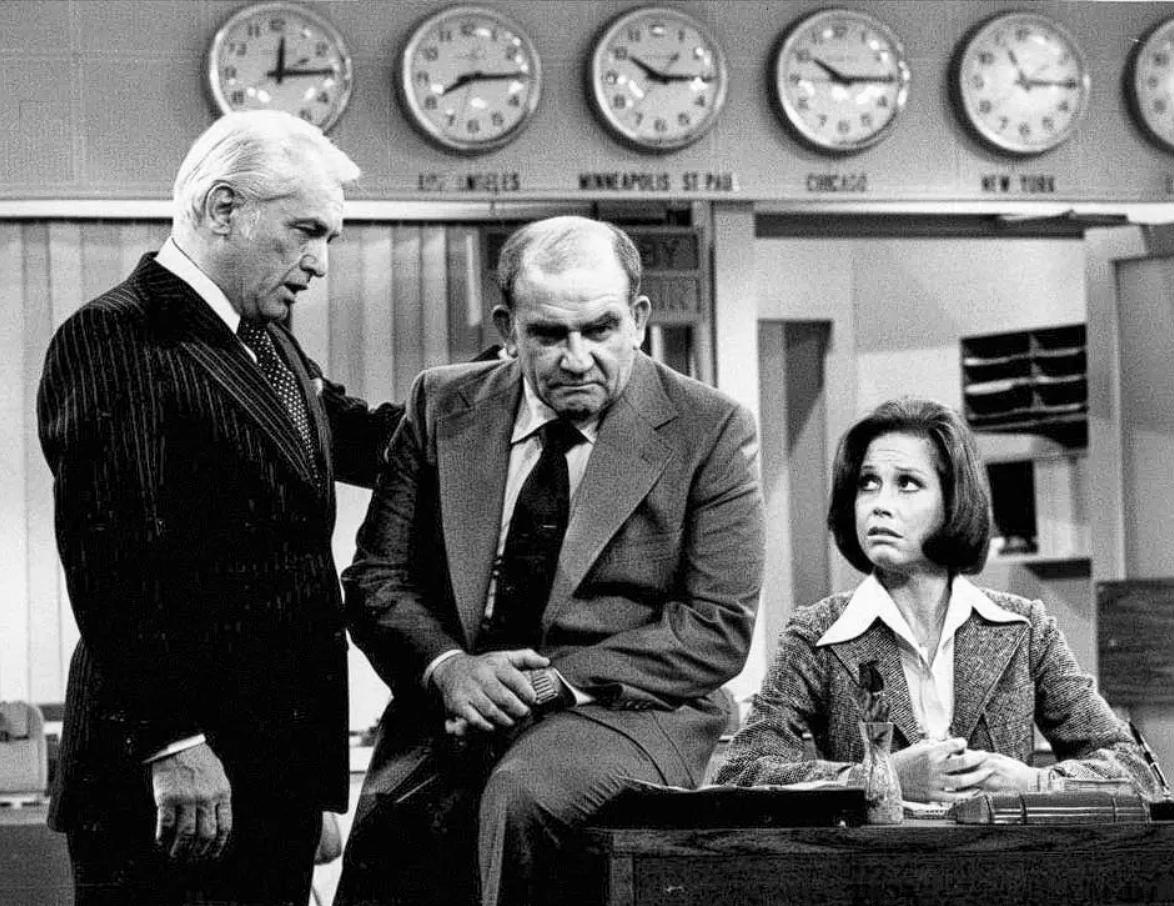
A Grounded Personal Life: Family and Quiet Philanthropy
Despite the soaring heights of his professional success, Ted Knight remained remarkably grounded in his personal life. He married his beloved Dorothy Smith in 1948, and together they raised three cherished children. Known for his unwavering commitment to his family, he often brought his children to the set of his shows and never missed an important event in their lives, such as a Little League game. Demonstrating a quiet and unassuming generosity, he also volunteered regularly at veterans’ hospitals, consistently refusing to allow any photographs to be taken during his visits. He lived by a simple yet profound personal motto: “Don’t make kindness public. Just do it and shut up.”
A Private Battle: Courage in the Face of Adversity
In 1977, at the height of his career, Ted Knight received a life-altering diagnosis: colorectal cancer. In keeping with his private nature, he chose to keep his illness largely concealed from the public eye and continued to work with remarkable dedication and professionalism, even taping episodes of “Too Close for Comfort” while undergoing rigorous medical treatments. His co-stars on the show often remarked on his incredible resilience, noting that he never once requested special treatment or missed a single rehearsal. In the early months of 1986, his condition tragically began to worsen. Ted Knight passed away on August 26, 1986, at St. Joseph Medical Center in Glendale, California, surrounded by the love and support of his wife and children.
Conclusion: The Enduring Echo of a Unique Voice
On the somber day of his funeral, a small and heartfelt tribute was paid to Ted Knight by a group of CBS technicians. In the control room of Studio City’s Stage 7, the very stage where “The Mary Tyler Moore Show” had been filmed, they placed a framed photograph of the beloved actor. Beneath the image, a simple yet deeply poignant note served as a final farewell: “His voice is off, but the echo remains.” Ted Knight’s journey, from a war-torn past to the unexpected heights of comedic stardom, is a testament to his resilience, his multifaceted talent, and the enduring impact of a truly unique voice that continues to resonate in the hearts of those who remember him.